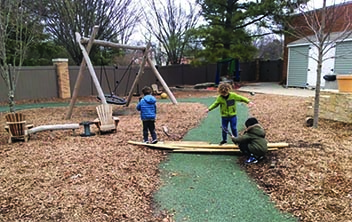By Donna Peters and Lisa Plotkin
Parents often feel anxious about their child’s readiness for Kindergarten!
We are confident the children in our Preschool will be prepared and eager to take on the challenges and next steps of kindergarten. The experiences and opportunities provided here help build resilient, confident, independent, and caring children who develop an excitement for learning and discovery.
Our children are capable learners who successfully use the skills of self-regulation, problem solving, inquiry, creativity, and collaboration in their daily lives and relationships.
Moments of Joy
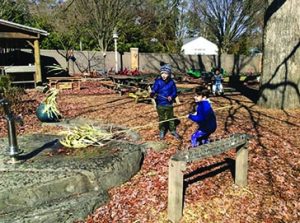 Being immersed in an environment encouraging moments of joy and wonder adds to each child’s excitement and pride in learning. I am always pleased when I hear kindergarten teachers and elementary school administrators express how much they look forward to Weinstein JCC preschool children joining their programs.
Being immersed in an environment encouraging moments of joy and wonder adds to each child’s excitement and pride in learning. I am always pleased when I hear kindergarten teachers and elementary school administrators express how much they look forward to Weinstein JCC preschool children joining their programs.
Parents often wonder… “My child isn’t reading/writing yet, is that okay?” “Shouldn’t they know how to write their name already?” “When will they know the days of the week?” “Is my child going to be ready for kindergarten?”
We want to shed some light on our approach to making sure children are ready, not just for kindergarten, but for the increasingly complex challenges that await them as they mature.
As teachers, we are here:
- To support you in raising your children and to help them build a strong foundation of self-esteem, self-awareness and empathy
- To inspire your child to love learning about themselves and their world
- To challenge your child to strive to reach their potential
- To encourage your child to develop an aptitude for self-expression and creativity
Loris Malaguzzi, founder of the Reggio Emilia Approach, described a concept of “the hundred languages of learning” in which all children have a strength, and it is our role as educators to help them find and build upon that strength.
We believe b’tzelem elohim – all people have divine potential within them; every person has their purpose, and everything has its place. We are honored to help you and your child develop awareness of the beauty within themselves, each other, and the natural world.
Children demonstrate valuable skills that translate to deep understanding of concepts like 1-1 correspondence; inclusion and counting; and the function and power of written, pictorial, and emotional information.
Development
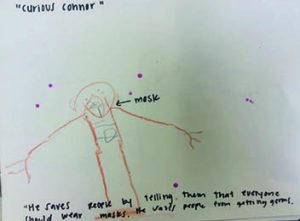 You have undoubtedly witnessed examples of this development: the child who makes cards for each person in her class; the child who offers each person a ticket when they enter his classroom for a puppet show; or the child who explains the handmade menu to cafe visitors on the playground.
You have undoubtedly witnessed examples of this development: the child who makes cards for each person in her class; the child who offers each person a ticket when they enter his classroom for a puppet show; or the child who explains the handmade menu to cafe visitors on the playground.
These experiences engage a child’s interest in the skills required to make the play successful. Building the foundation for these skills is inherent in the child’s play scenarios. You cannot force a child to want to write, but if they want to communicate the menu items for their walk-up cafe, a love of learning is in process.
Children have YEARS to learn how to write, read, and learn facts. Through meaningful and purposeful play, children build even greater foundational understanding and appreciation for materials, creativity with loose parts, and interaction with peers.
Play
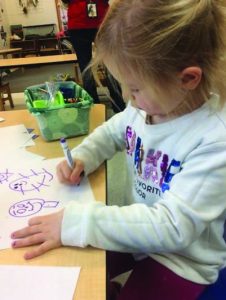 During play, they develop physical skills like hand/eye coordination and vital upper body strength which lays the foundation for fine motor skills and prepares the body for writing.
During play, they develop physical skills like hand/eye coordination and vital upper body strength which lays the foundation for fine motor skills and prepares the body for writing.
The icing on the cake is that literacy, mathematics, physics, and so many other academic facets are literally embedded in our preschool days. Seeing the sign on a passing truck and wondering what it says is a fantastic example of interest in the meaning of print. Not enough graham crackers for each child to have one full sheet? Well, what can we do? What a great opportunity to solve a real-life challenge!
The simple act of reading with your children builds a foundation for reading, writing, listening skills, cognitive and language development, language skills, attention span, and creativity. Additionally, as highlighted by NAEYC, exposure and play with print and literacy help to build the foundations for reading and writing success. When a child “makes a mark”, writing anything from their name to a representational drawing – even if only a scribble – they are writing in line with their development at that moment and showing an emerging understanding of writing as a form of communication.
Top Three Skills
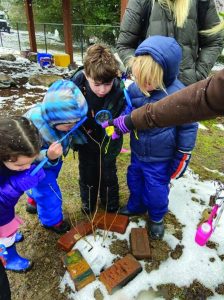 Anne Schwartz, a Kindergarten teacher at Congregation Beth Israel in Charlottesville, listed the top three skills she works on with her students: persevering and building resiliency, impulse control, and kindness. “Kindergarten is the place where kids tackle challenges, work on impulse control, strengthen executive functioning skills, build confidence, and learn how to negotiate conflicts.”
Anne Schwartz, a Kindergarten teacher at Congregation Beth Israel in Charlottesville, listed the top three skills she works on with her students: persevering and building resiliency, impulse control, and kindness. “Kindergarten is the place where kids tackle challenges, work on impulse control, strengthen executive functioning skills, build confidence, and learn how to negotiate conflicts.”
She explains that children begin to learn lower and upper case letters, 3-letter words, and math basics outlined in state guidelines, but social and emotional skills are what is necessary for success throughout the kindergarten year and beyond. “Academics pales in comparison to what’s really vital for kindergarteners,” she asserts.
Saint Christopher’s Lower School Admissions Director Anne Wesley Gehring states that her school “is looking for curious, passionate boys who are excited to learn and try new things. In Kindergarten, boys will practice independence, develop self-confidence and make lifelong friends along the way.”
Kindergarten Readiness
Sabot at Stony Point’s Director of Admissions and Enrollment Maggie Barrett shared with us a list of Kindergarten readiness aspects including an ability to work independently for a short period of time, curiosity, ability to listen to others, and age-appropriate body regulation. She also highlighted that children should demonstrate a willingness to transition to a different activity or idea as well as identifying their responsibility in a situation or problem. Her list does not mention academics.
Weinstein JCC Preschool
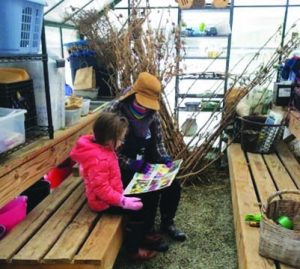 At the Weinstein JCC Preschool, we strive to create an inclusive and kind community. We model developmentally appropriate ways to involve peers through effective communication, conflict resolution, and awareness of self and others. We prioritize social and emotional development because, as experts in early childhood development, we know that these foundational skills are essential to success in life and are, in fact, much more difficult to learn after age 5 or 6.
At the Weinstein JCC Preschool, we strive to create an inclusive and kind community. We model developmentally appropriate ways to involve peers through effective communication, conflict resolution, and awareness of self and others. We prioritize social and emotional development because, as experts in early childhood development, we know that these foundational skills are essential to success in life and are, in fact, much more difficult to learn after age 5 or 6.
Conversely, as Ms. Schwartz can attest, academic skills are typically much easier to acquire when a child has a solid social and emotional foundation.
When you wonder if your child will know all of the letters and numbers by kindergarten, remember that we are focusing on building confidence and helping each child learn how to express themselves in socially acceptable ways. When their Kindergarten teacher expects them to sit upright and tackle a new challenge, like phonics and the sounds of letters, your child will be emotionally able to rise to that challenge.
Weinstein JCC Preschool Teacher Julia Schneider offers a reminder “to anyone who has been anxious with thoughts of kindergarten, keep in mind that foundational skills are ever present and evolving in the lives of your wonderful children. They will look different for each child, and [their skills] are ALL valued!”
For more information about the Weinstein JCC’s Preschool program, please contact Donna Peters, Early Childhood Director at dpeters@weinsteinjcc.org or (804) 545-8617.
Thank you for choosing the Weinstein JCC Preschool for your child’s formative years. Please continue to ask us questions and be partners with us in your child’s preschool experience. We value your perspective and want to understand your questions as well. At the end of the day, we want you to feel confident in the trust you have placed in us.

